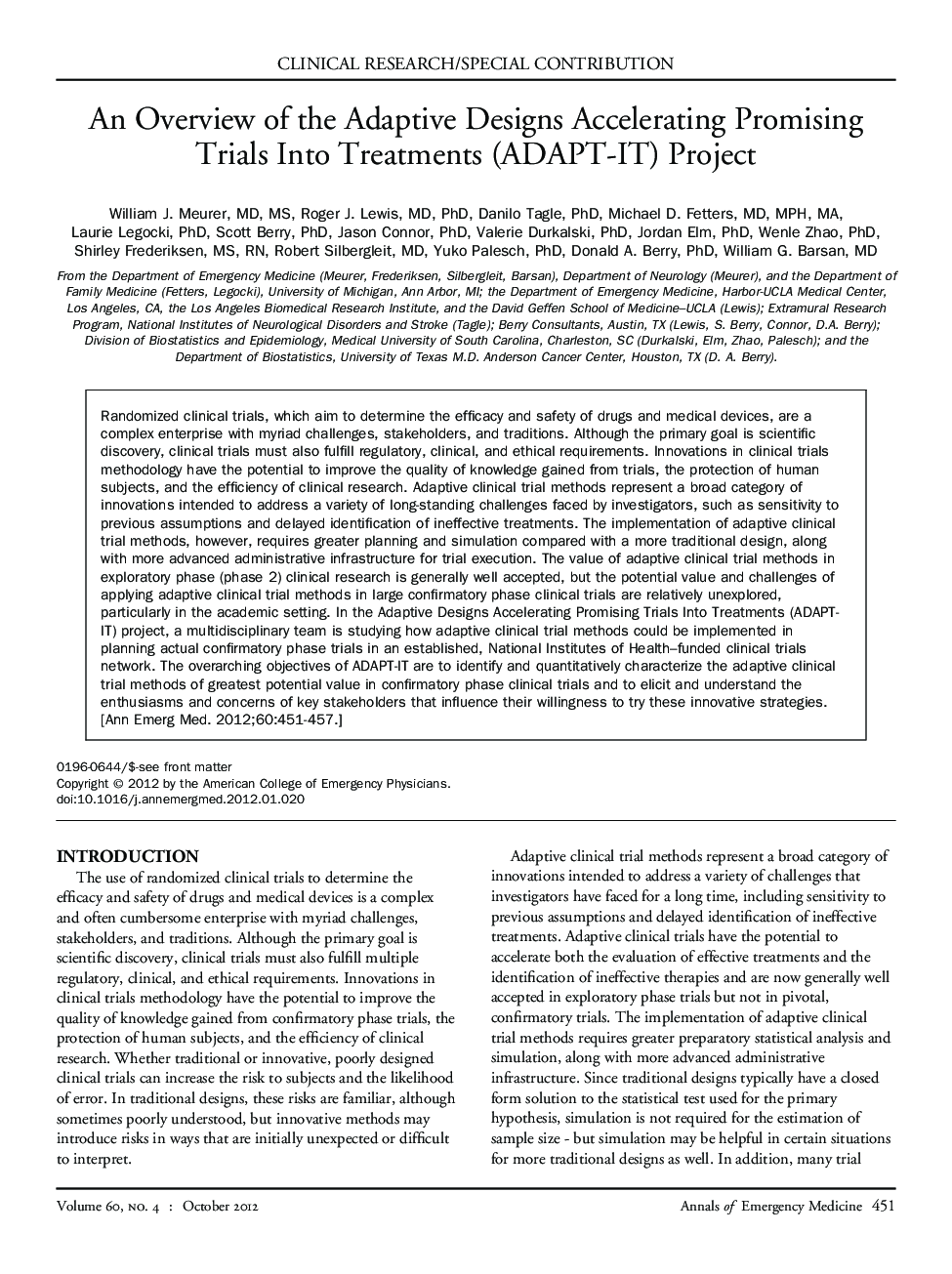| Article ID | Journal | Published Year | Pages | File Type |
|---|---|---|---|---|
| 3230179 | Annals of Emergency Medicine | 2012 | 7 Pages |
Randomized clinical trials, which aim to determine the efficacy and safety of drugs and medical devices, are a complex enterprise with myriad challenges, stakeholders, and traditions. Although the primary goal is scientific discovery, clinical trials must also fulfill regulatory, clinical, and ethical requirements. Innovations in clinical trials methodology have the potential to improve the quality of knowledge gained from trials, the protection of human subjects, and the efficiency of clinical research. Adaptive clinical trial methods represent a broad category of innovations intended to address a variety of long-standing challenges faced by investigators, such as sensitivity to previous assumptions and delayed identification of ineffective treatments. The implementation of adaptive clinical trial methods, however, requires greater planning and simulation compared with a more traditional design, along with more advanced administrative infrastructure for trial execution. The value of adaptive clinical trial methods in exploratory phase (phase 2) clinical research is generally well accepted, but the potential value and challenges of applying adaptive clinical trial methods in large confirmatory phase clinical trials are relatively unexplored, particularly in the academic setting. In the Adaptive Designs Accelerating Promising Trials Into Treatments (ADAPT-IT) project, a multidisciplinary team is studying how adaptive clinical trial methods could be implemented in planning actual confirmatory phase trials in an established, National Institutes of Health–funded clinical trials network. The overarching objectives of ADAPT-IT are to identify and quantitatively characterize the adaptive clinical trial methods of greatest potential value in confirmatory phase clinical trials and to elicit and understand the enthusiasms and concerns of key stakeholders that influence their willingness to try these innovative strategies.
